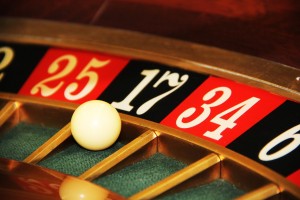
Located on China’s southeast coast, Macau serves as a special administrative region of the country. Macau, Asia’s premier gambling hub, is a fascinating mix of Chinese and Portuguese architecture. Most tourists agree that it is a beautiful city with good roads, parks, and magnificent hilly scenery that is ideal for both tourism and residential use. It has a plethora of natural beauty, fresh air, and a wide variety of delectable cuisine to offer. A Chinese version of Las Vegas, it is a popular tourist destination in the country.
The history of the land is a source of pride for the people of the region. It is still the only site in China where gaming is legal and permitted. According to the International Monetary Fund (IMF), the country’s GDP is $53.9 billion in nominal terms because of its strong dependence on gambling, gaming, and tourism. Surprisingly, it earns more revenue than Las Vegas, with a yearly income of $37 billion in 2018, according to figures.
How It Became Asia’s Las Vegas
According to the International Monetary Fund (IMF), the gambling industry in Macau contributes around 40% of the local GDP. Macau’s name comes from the residents’ reverence for the mythical sea goddess Mazu, who was worshipped at the nearby A-Ma Temple. According to folklore, one of the Portuguese captains enquired a fisherman about the island’s name when he first arrived on the island in the 16th century.
The man responded with the term “Magao,” which is the name of the A-Ma Temple in front of them, misreading the officer’s meaning. Macau did not become a significant settlement until the advent of the Portuguese in the 16th century. In 1513, explorer Jorge Lázaro became the first European to set foot on Chinese soil after sailing into the country. The first trading post in the Hong Kong seas was established in the 16th century at Tamao (present-day Tuen Mun), establishing frequent trade with nearby towns in southern China. Ming and Portuguese ships engaged in naval battles following the expulsion of Tamao traders from China in 1521. It wasn’t until the Pearl River Estuary was settled by Portuguese merchants that they were able to establish themselves in Macau.
The unique administrative status of Macau, which dates back to 1999, means that it is subject to different rules than the rest of China. Because it is the only part of Greater China where gambling is legal, this region (which includes the Chinese mainland, Hong Kong, and Macau) is home to China’s sole gambling destination.
A tense environment prevailed in Macau in the years running up to the handover in 1999, as organized crime fought for control of the subcontracted VIP gambling areas. Macau’s GDP grew by double digits every year between 2002 and 2014, making it one of the world’s wealthiest economies per capita. Macau’s success can also be attributed to the presence of VIP rooms, where high-stakes games can be played in privacy. They set Macau apart from other casino resorts across the world with their unique take on gambling.
Fascinating Facts About Macau
- Macau is a household name when it comes to gambling. It’s a haven for lovers of casinos and good means to have maximum fun. Its economy is mostly centered on wagering, which is an interesting reality. The 83rd largest economy in the world derives 60% of its revenue from gambling. China and other countries are the main sources of visitors to the city.
- There are four major gambling towns in the world, and Macau is one of them because of its 400-year history as a Portuguese colony. It is a popular destination for tourists because of its Portuguese architecture, islands, museums, fortresses, and magnificent casinos on par with Las Vegas and wonderful food.
- In spite of its tiny size, Macau is home to numerous sports and leisure facilities that have hosted numerous international athletic events. The Macau Grand Prix, one of the most important yearly motorsports championships that take place on city streets, is held on a regular basis throughout the region. For the first time, Formula Three, touring cars, and motorcycles all compete on the same street track. Despite having its own National Olympic Committee, the area does not participate in the Olympic Games. In addition to horse and greyhound racing, Macau also hosts a Grand Prix race in October every year.
- In any casino, blackjack is the most popular game, but in the city, things are a little different. This is a baccarat-centric establishment. Gambling is viewed as a serious activity in China, and it is not done for fun. You wouldn’t be surprised if you come across someone who was so committed to it. Such gamblers have a plethora of choices in this city. On the open floors, there is a lot of action, but the VIP rooms are where most of it takes place.
Conclusion
The modernism of Macau is rooted in China’s growth and the wealth of its people. It is critical to the long-term prosperity of Macau that it be able to draw in a large number of tourists and gamblers. For years to come, China’s middle class is expected to provide a constant supply. If you’re a gambler, Macau is the place to be. There is a lot of gaming activity in the region. All of your gambling needs will be met here, from high-rise casinos to scorching slot machines. Macau attracts some of the world’s top gamblers.



